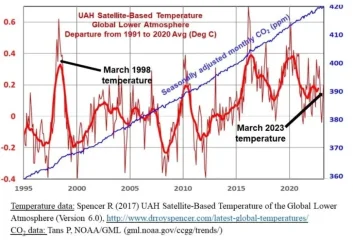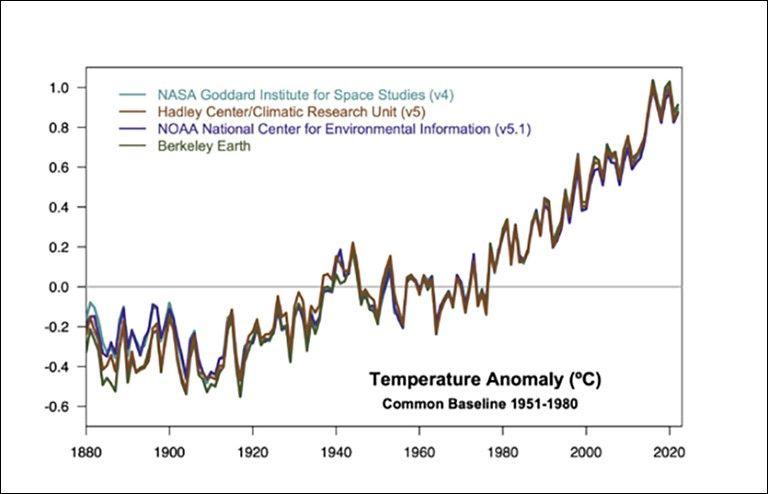Lineslinger
VIP MEMBER
- Joined
- Feb 26, 2017
- Messages
- 1,964
Hypothesis to theory takes a long time and is confirmed by observational data not by models.
History of plate tectonics
scecinfo.usc.edu
Plate tectonic theory had its beginnings in 1915 when Alfred Wegener proposed his theory of "continental drift."
This was the first hypothesis, it got disproved but it was heading in the right direction and came back modified from results of observations.
In the 1960's a world-wide array of seismometers were installed to monitor nuclear testing, and these instruments revealed a startling geological phenomenon. It showed that earthquakes, volcanoes, and other active geologic features for the most part aligned along distinct belts around the world, and those belts defined the edges of tectonic plates.
And yet Climate Science
Michael Joseph Kelly
Credentials
Ph.D., solid state physics, Cambridge (1974).1
M.Sc., Mathematics and Physics, University of Wellington, New Zealand.2
FR.Eng.3
FRS.4
“It’s no good looking at a model today and saying it’s done well for the last 30 years. If you look at a model made 30 years ago and look how well it’s done in the 30 years since, if you look at the data for the last 30 years, on average the models have been heating twice as fast as the data,” he said.
On NetZero based on Boris Johnsons UK plan
In an article for The Spectator, Kelly characterised Prime Minister Boris Johnson’s 10 point plan for a “Green Industrial Revolution” as “doomed from the outset,” and “reckless, unscientific and certain to fail.” Kelly disputed the cost implications of Johnson’s plan, writing: “Johnson’s green revolution would mean that we would need to completely upgrade electric wiring in our homes, streets, substations, and transmission lines. To meet demand would require enormously costly upgrades to local electricity grids, which we would all ultimately pay for through higher energy bills. If this really is part of the plan, then the government must be honest about who is to foot the bill.”
On the IPCC
As a panel member for an inquiry into the “Climategate” controversy in 2009, Kelly said:14 15
“Up to and throughout this exercise, I have remained puzzled how the real humility of the scientists in this area, as evident in their papers, including all these here, and the talks I have heard them give, is morphed into statements of confidence at the 95% level for public consumption through the IPCC process. This does not happen in other subjects of equal importance to humanity, e.g. energy futures or environmental degradation or resource depletion. I can only think it is the ‘authority’ appropriated by the IPCC itself that is the root cause.”
Anyone who has a hint of insight regarding historical geologic activity understands the above.
"Historical" indicates a study of the Geologic activity over hundreds of millions of years. Thirty years is not even the beginning of a blink from the perspective of geologic history.
Last edited:









:max_bytes(150000):strip_icc()/older-woman-checking-prescription-with-cell-phone-758282675-5bd0d32cc9e77c005151af3c.jpg)